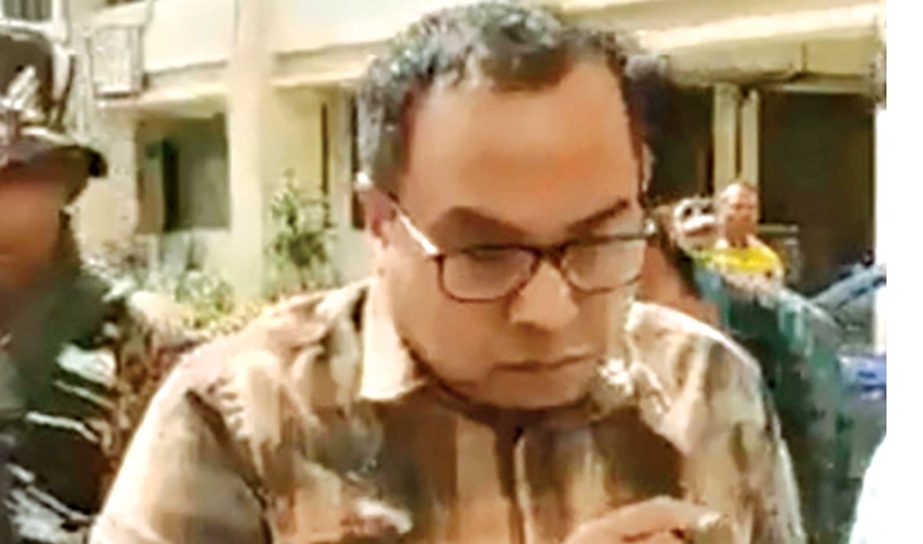
UNB, Dhaka :
Indian High Commissioner to Bangladesh Vikram Kumar Doraiswami said on Tuesday that legal process has to be completed before extradition of Bangladeshi businessman PK Halder from India to Bangladesh.
Halder, wanted in Bangladesh for money laundering and a series of financial crimes, was arrested on Sunday by India’s federal Enforcement Directorate, in West Bengal.
While responding to questions from reporters after a meeting at the Ministry of Foreign Affairs, Doraiswami said it is a process and it is not like exchanging Christmas cards.
“These are things done through legal process. Let that happen slowly,” he said, adding that they are working with the Bangladesh government.
He said there will be response from their side at some point of time based on the information they are provided with.
Earlier, the high commissioner had a meeting with Foreign Secretary Masud Bin Momen on the preparation of foreign minister-level Bangladesh-India Joint Consultative Commission (JCC) meeting to be held in Delhi on May 30 and and discussed cooperation in bilateral and multilateral domains.
During his meeting the FS raised the issue and sought India’s support for handing over PK Halder to Bangladesh.
He said the envoy assured of their full cooperation in the matter.
The foreign secretary said India will take into consideration Bangladesh’s request once they complete their own legal process there.
He said there will formal request through the diplomatic channel too and the Home Ministry will play an active role to that end.
Bangladesh wants to know full extent of financial criminality of PK Halder in India that might help in terms of the cases he faces in Bangladesh.
It’s up to India to see if he committed any crime there and that may be under investigation , he said.

Responding to a question, the FS said it does not necessarily require legal framework always if there is very good friendship between the two countries.
He, however, said cases related to financial criminality might be different from other criminal cases.
Masud said they are closely working with the Anti-Corruption Commission so that mutual legal agreements (MLA) can be signed with those countries where, the government thinks, money laundering issues are involved.
He said the MoFA, ACC and the Home Ministry are on the same page to make sure that no criminal is given space.
On Monday, Foreign Minister AK Abdul Momen said the government would do everything necessary as per the “set procedures” regarding fugitive PK Halder who has been arrested in West Bengal.
“We have set procedures. We will work accordingly. We will do everything whatever is necessary,” he told reporters, noting that his ministry is yet to receive any information officially from the Indian government regarding Halder’s arrest.
Momen said India will first let them (Bangladesh) know that he is arrested in India and he may be punished there.
Responding to a question, he said top Ulfa leader Anup Chetia was handed over to India after trial and punishment in Bangladesh. “Same procedures are likely to follow but I don’t know. Probably, the Ministry of Law knows better.”
In November 2005, Bangladesh handed over Chetia to India 18 years after his arrest in Dhaka for trespassing.
Chetia, a founding member of one of India’s top insurgent groups United Liberation Front of Asom (Ulfa), had been in prison since his arrest in Mohammadpur on December 21, 1997 and he was released after completion of his jail term.
“We have a good intention (to get PK Halder back),” Momen said, hoping that India will listen to Bangladesh’s request on a priority basis as the two countries are passing a golden era in their relations.
PK Halder, who was on the run facing charges of money laundering since 2019, was arrested by the Indian Directorate of Enforcement.

